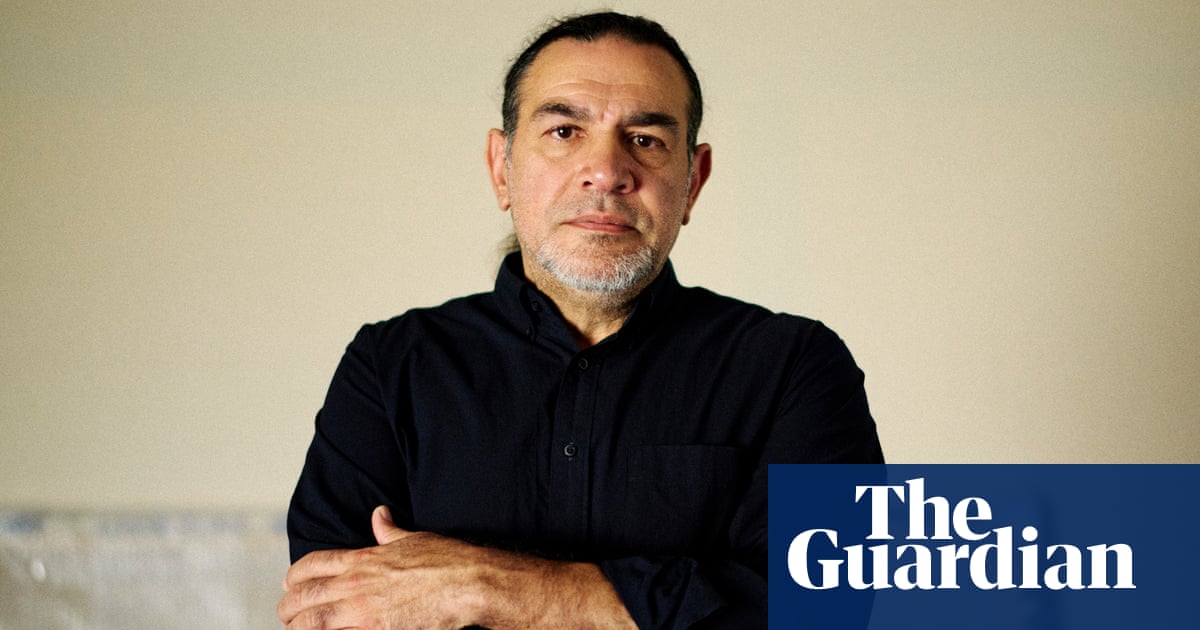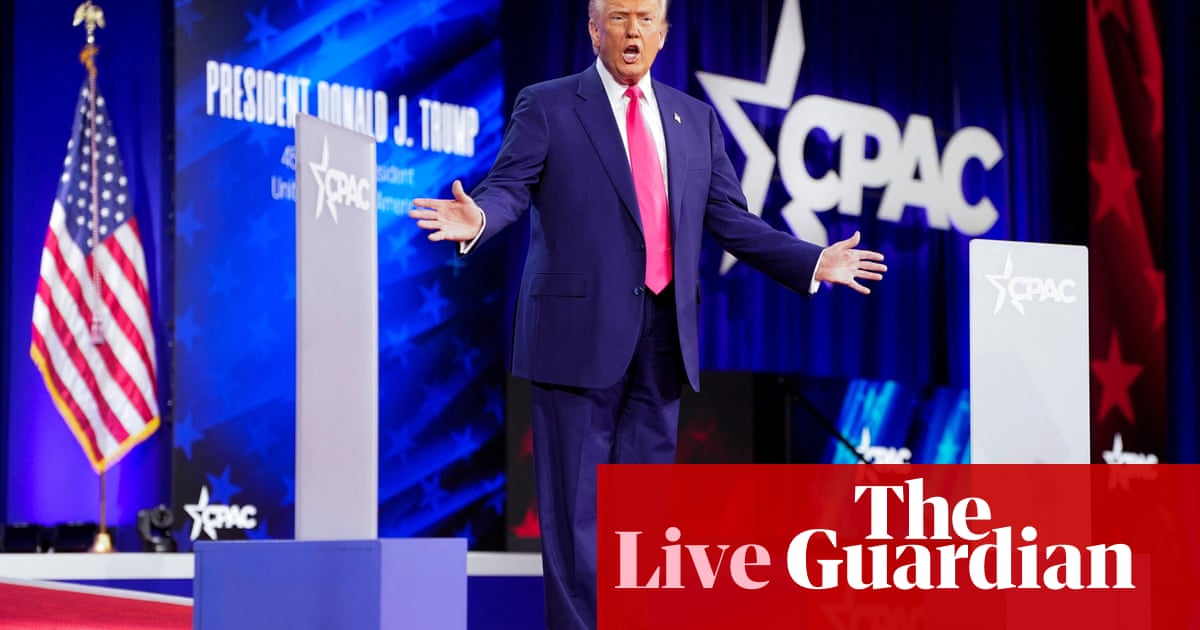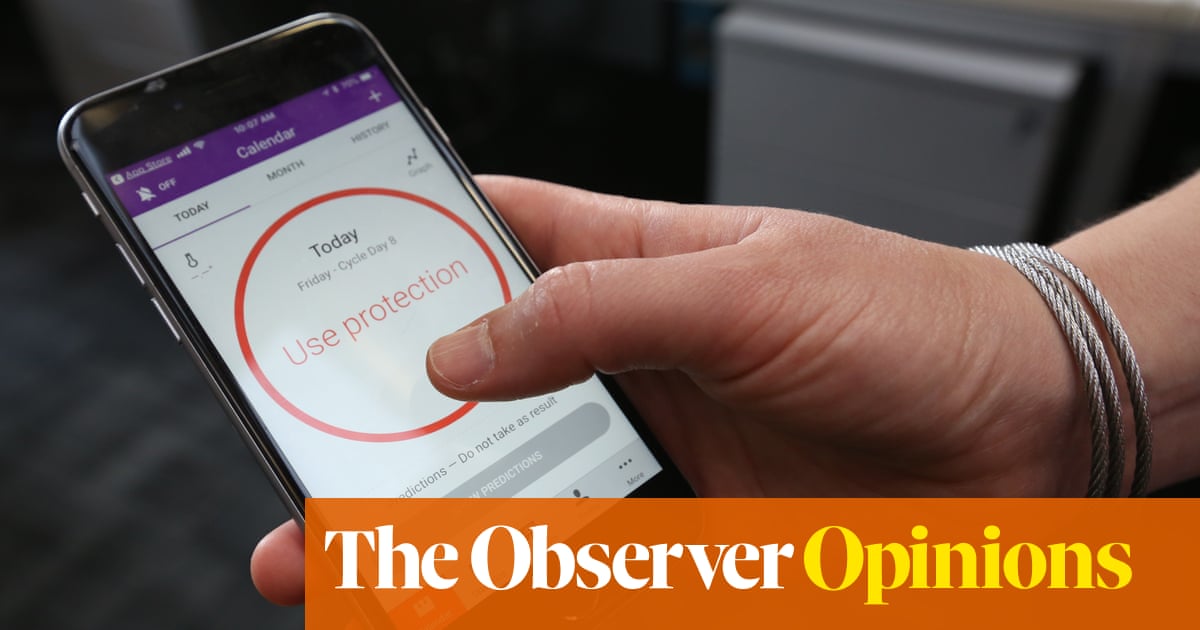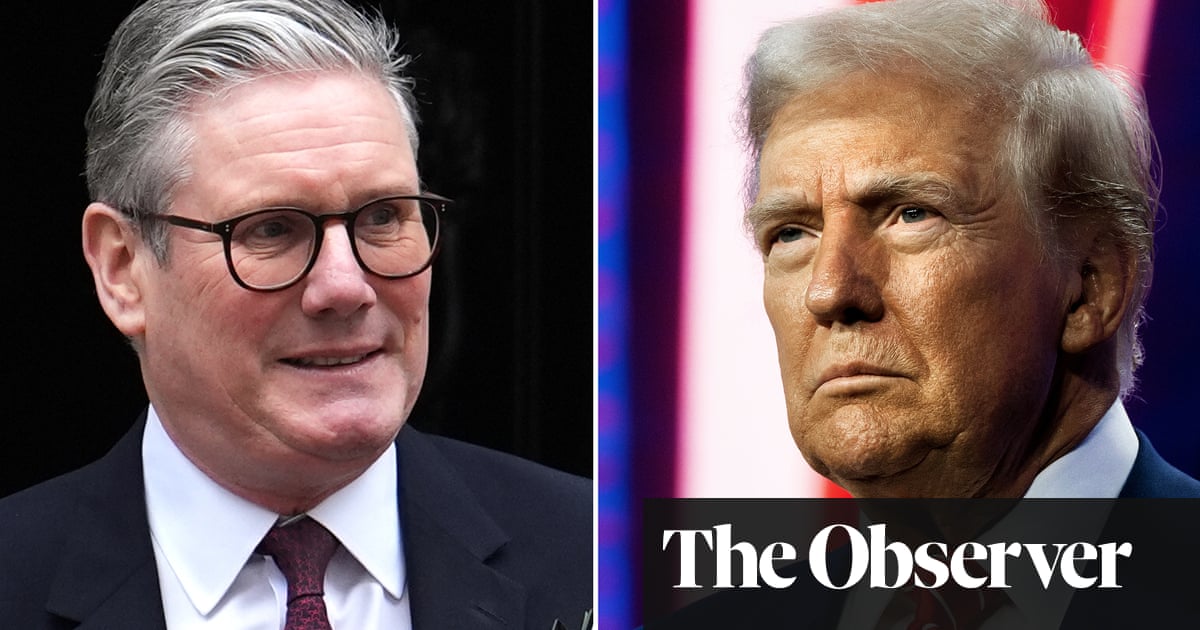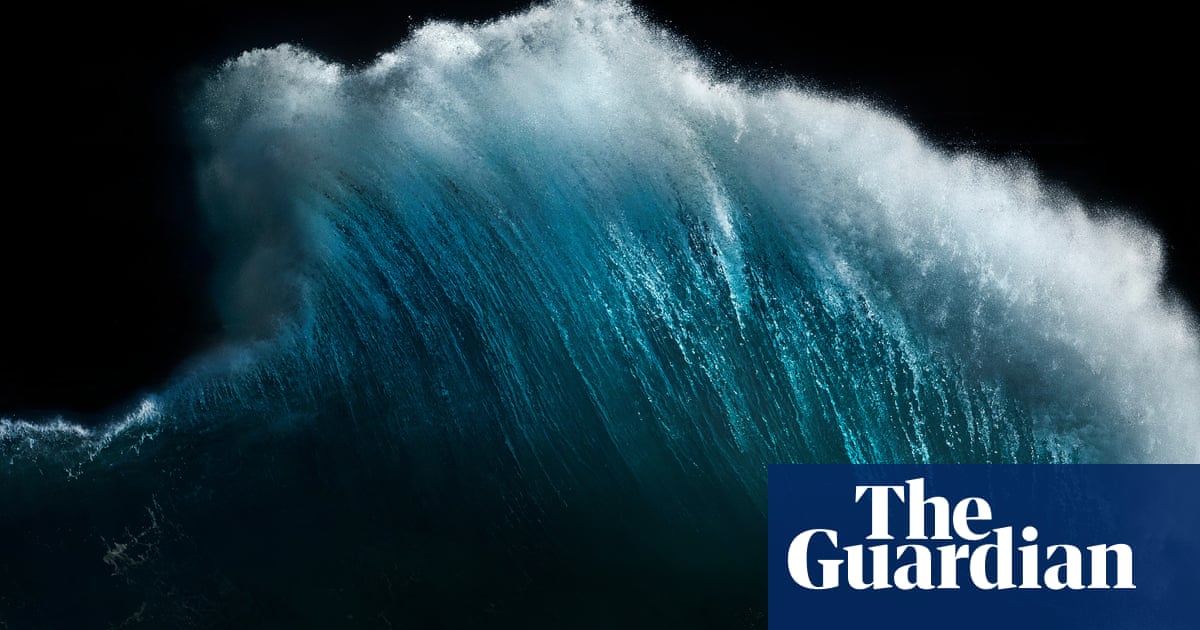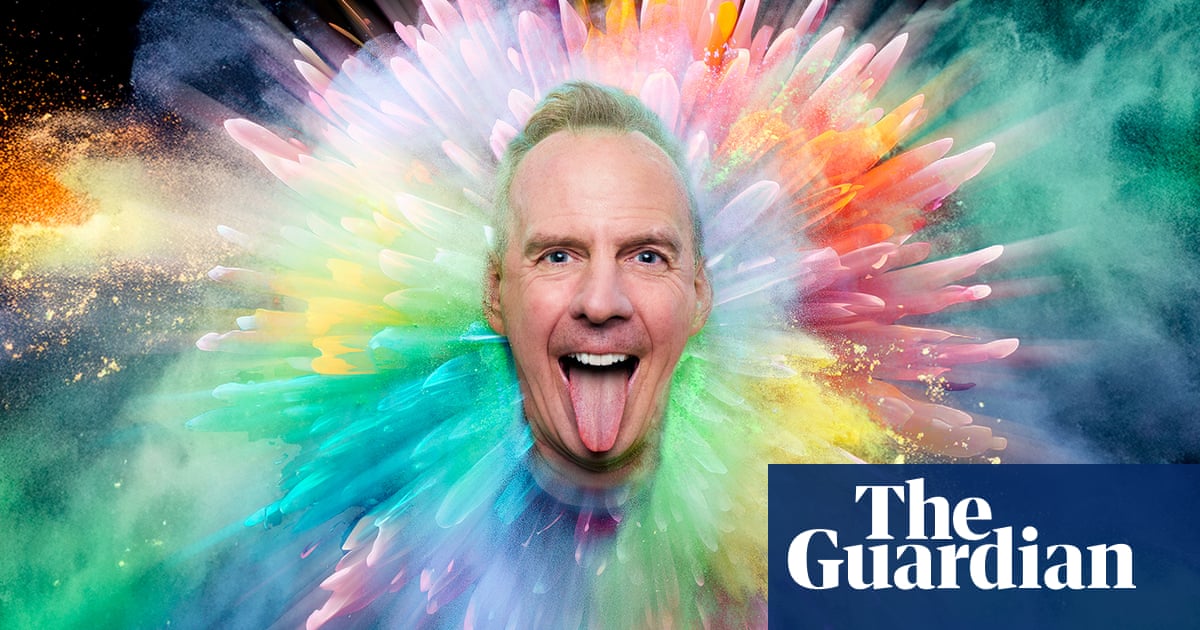“I don’t believe in America being the beacon of democracy,” says the documentary film-maker Nanfu Wang. “America sliding into autocracy is not something that is unimaginable.”
Terms such as democracy and autocracy have been thrown around a lot since the re-election of Donald Trump as US president. But Wang speaks with unusual authority on this subject. She was born in China and lived under its authoritarian regime until 2011 when, aged 26, she moved to the US because of its promise of democracy and freedom.
Now she has made a film, Night Is Not Eternal, based on seven years following the activist Rosa María Payá in her fight for democratic reform in Cuba. The narrative explores how Cuba’s struggle against tyranny rhymes with that in China, which Wang still regards as home but where her films are banned, and how the erosion of democratic norms in the US throws both into sharp relief.
It also provokes a conversation about the dislocation of the immigrant experience and whether it is possible to effect change from afar. Wang discovers that Payá, now based in Miami, Florida, does not necessarily share her critique of Trump as a profound threat to democracy. Members of the Chinese diaspora are similarly divided.
Wang first met Payá in March 2016 at a film festival in Prague in the Czech Republic, where she was showing her first film, Hooligan Sparrow, which follows a human rights activist seeking justice for six sexually abused schoolgirls. They were kindred spirits only a few years apart in age.
“She came to me along with a few friends and told me that the film reminded her of Cuba a lot and she resonated with everything depicted in the film,” says Wang, 38, over Zoom from her home in Montclair, New Jersey. “I was curious about Cuba, and was like, tell me about it, what is Cuba like? We ended up speaking and realising that it’s so similar what we’ve experienced. We were able to finish each other’s sentences. ‘Yeah, that’s how the government dealt with us too.’”
Wang was fascinated by the story of Payá’s father, Oswaldo Payá, a leading dissident and pro-democracy activist nominated five times for the Nobel peace prize who died in a 2012 car crash; last year the Inter-American Commission of Human Rights held the Cuban state responsible for his murder.
Wang was also seeking answers to doubts about her own ability to make an impact as a film-maker. She recalls: “My first film premiered at Sundance. When it came out, immediately there were reviews and I thought, this is it, they are going to release the activists who are in prison because of the pressure from all of the news and publicity. I was naive enough to believe that immediate change would happen. It didn’t.
“Months later, I started wondering, if this is not going to lead to any concrete small change, such as releasing the imprisoned activists, then what is the meaning of my work? How can my work be impactful? What can I do? Seeing Rosa, we shared the values of wanting to create change in our countries and she is doing something different: on-the-ground activism.
“I felt that she had a lot more optimism feeling that, yes, Cuba is going to become a democracy and we’re going to see it. It was that difference and then also a sense of admiration for her determination and optimism that led me to say, ‘I want to make a film with you. Can I go to Cuba with you? Can I see what it’s like there?’”
Wang and Payá flew into Cuba together but, as a precaution, acted as if they didn’t know each other on the plane and airport, communicating by text message instead. Once they got to work on the ground, Wang observed how Payá swapped taxis often to shake off pursuers, how activists changed phone batteries when meeting and how, even at home, Payá played loud music to drown out conversations.
She says: “The challenge was not knowing when those people who are following us constantly would make a move and then come forward in direct confrontation, whether it’s confiscating the camera or putting me in detention. That’s unknown. I felt that’s very similar to working in China.
“Once you are in public, you always have to be prepared for the worst. So every time I step out of the car, step out at the house, I need to make a calculation. Do I want to hide all my hard drives? Do I want to bring only a memory card that’s empty? What if this is the time that they took everything? Am I prepared for that consequence? So each time going out is like getting ready for that.”
Wang followed Payá to a convention of Cuban democracy activists in Puerto Rico. Some were from inside Cuba but the majority were living in exile. Wang had never seen such a level of organisation among Chinese dissidents, who are riven by infighting and division. But before long the meeting descended into chaos. It was dominated by an older generation of activists; Payá was among the youngest people there but, if frustrated, she did not let it show.
The age divide among activists reminded Wang of China. “The younger generation are much more creative. They tend to use art and want to use music and visual art and that kind of a medium to engage civil society. The older generation – this is a general observation – tend to be more radical.
“The internet in both countries is a big, useful tool for them to do activism. Things that used to be impossible 20 years ago are now being utilised on social media. They could gather people, they could make something viral, before the censorship.”
Wang also compared and contrasted how the governments of both countries seek to crush dissent. “China is much more advanced in technology. In Cuba I felt a lot of times the agents who followed us would take shifts of three different cars, three different people, and everywhere we go, they are physically tailing us.
“In China that happens too but more likely is tracking through phone devices everywhere you go – like you have a digital chase. When I was working in China, I wouldn’t necessarily have people trail me all the time, but definitely everywhere I appeared there would be new people just parachuting there and waiting for me.”
But the title of Wang’s film implies that there is light at the end of the tunnel, that the autocracies of China and Cuba are not forever. “Rosa is more optimistic than me,” she admits. “She thinks this could last maybe 10 or 20 years. She thinks change could happen tomorrow. I might not be as optimistic, especially with everything happening in the US as well, but as I said in the film, it’s a choice to remain optimistic and believe that eventually, if it’s 30 years or 50 years or who knows, eventually it won’t last.”

The global struggle between democracy and autocracy was an early theme of Joe Biden’s presidency in the aftermath of the January 6 insurrection at the US Capitol. The recent election was filled with warnings that Trump is a would-be dictator poised to tear down US democracy and curry favour with strongmen including the Chinese leader, Xi Jinping.
In 2018 Xi changed the Chinese constitution so that he can in effect remain in power indefinitely. Night Is Not Eternal includes footage of Trump saying: “President Xi, president for life. President for life – that sounds good. Maybe we’re going to have to try it – president for life.”
Wang does not feel that US democracy is stable or guaranteed. She recalls of Trump’s first election: “Definitely 2016 was the year that caused everyone to think: is this the America that we know? For me personally, it was the moment that I questioned, did I just have a misunderstanding about America or has America changed? For the past years since then my feeling has been it’s not that America changed that year. It is a long history and maybe what I assumed America was is not actually how it is.”
This time Trump ran a campaign based on retribution, vowing to prosecute election officials, journalists and other perceived political enemies. His central promise was a crackdown on illegal immigration and border security. He referred to undocumented immigrants as “animals” who he said were “poisoning the blood of our country”.
Even so, some immigrants apparently gravitated toward Trump for reasons including his economic populism, social conservatism and rabid anti-communism, as well as the hard line he takes on those coming to the country undocumented. He made significant inroads among the Latino community, becoming the first Republican since 1988 to win Florida’s Miami-Dade county, home to a sizable Cuban population.
While making the film, Wang was initially taken aback by Payá’s willingness to share a platform with Trump and reluctance to either endorse or condemn him. A day after the election, the pragmatic Payá tweeted: “Congratulations to the US people for a powerful democratic exercise, and to President @realDonaldTrump on your historic victory.”
Wang, who became a naturalised US citizen two years ago, reflects: “My community, the Chinese community, is equally polarised. What is confusing and very interesting is this includes a lot of the people with whom I might share the values of wanting democracy and freedom and change in our own home country.
“But here in America what we consider represents democracy, what is the solution, what leads to democracy, what is the threat to democracy, are complete opposites. Those Chinese friends who share the same values in China with me might argue that Trump is the person who is going to uphold democracy in America. The views are so drastically opposite.”
Trump’s use of terms such as “Chinese virus” and “kung flu” were widely blamed for fuelling an environment of hatred towards Asian Americans during the Covid-19 pandemic. The former president also branded Taiwan-born Elaine Chao, his former transportation secretary and the wife of Senator Mitch McConnell, with the nickname “Coco Chow”.
Yet many Chinese Americans support Trump because, in their view, he took a long-overdue hawkish stand against Beijing. Wang continues: “When I ask them, what about Trump’s anti-Asian remarks, they interpret: ‘He’s not against us, he calls it the China virus because he’s against the Chinese government, he’s against communism, he is against the CCP [Chinese Communist party].’ In that sense they share the values of he’s attacking China.”

She notes that Trump supporters also used the phrase “Chinese virus” but were maligning the entire country. “That to me is fascinating: how you can look at the same language, the same facts, and then arrive at a completely different interpretation.”
Trump’s jaw-dropping array of cabinet nominations so far have offered little comfort to Democrats or democrats. They include Matt Gaetz, a scandal-plagued former congressman eager to upend the justice department and wage vengeance on Trump’s behalf, for attorney general, the country’s top law enforcement official. Others, such as Tom Homan and Stephen Miller, are itching to launch the biggest deportation operation in history from the get-go.
Wang comments: “It’s like picking all the loyalists in your government to run the government and that’s what Xi Jinping did when he became president, replacing everyone with his loyalists regardless of their competency. They’re not chosen because of their expertise, because of their competence. It’s purely based on how loyal they are to the person. That will inevitably lead to chaos and corruption and so that’s concerning.”
The issue of mass deportation looms large for Wang’s family members, friends and acquaintances. “I already started hearing so many. I also teach students afraid of leaving for vacation and what if, post-January, they won’t be allowed to come back? All of these are real implications and fears and consequences.”
Democracy is in decline around the world: for the first time in decades there are more closed autocracies than liberal democracies. Even the US has suffered a decade of decline and, if only half the warnings about Trump are true, it is about to suffer yet another setback. China and other autocracies sense an opportunity.
Wang, whose film In the Same Breath examined the US and China’s response to the virus, adds: “Even during the pandemic there was a sense of how America and some western democratic countries failed to handle the pandemic, especially in 2021. That’s when North Korea and China would be like, ‘Look at our system as more superior. We have a better way of handling a crisis. This is the way the system should be.’
“If America slides into autocracy, definitely the whole world has more of a tendency to say, that’s how it works. When human rights abuses happen in one country, who do you hope are the international voices that would hold it accountable? There are fewer agencies, countries that are capable of holding them accountable.
“The signal that it’s sending to the world is that democracy is fragile. It’s not something that you can take for granted. It’s a process, not an end result, and something that people need to constantly fight for.”
-
Night Is Not Eternal is now available on Max in the US with a UK date to be announced

 3 months ago
54
3 months ago
54


